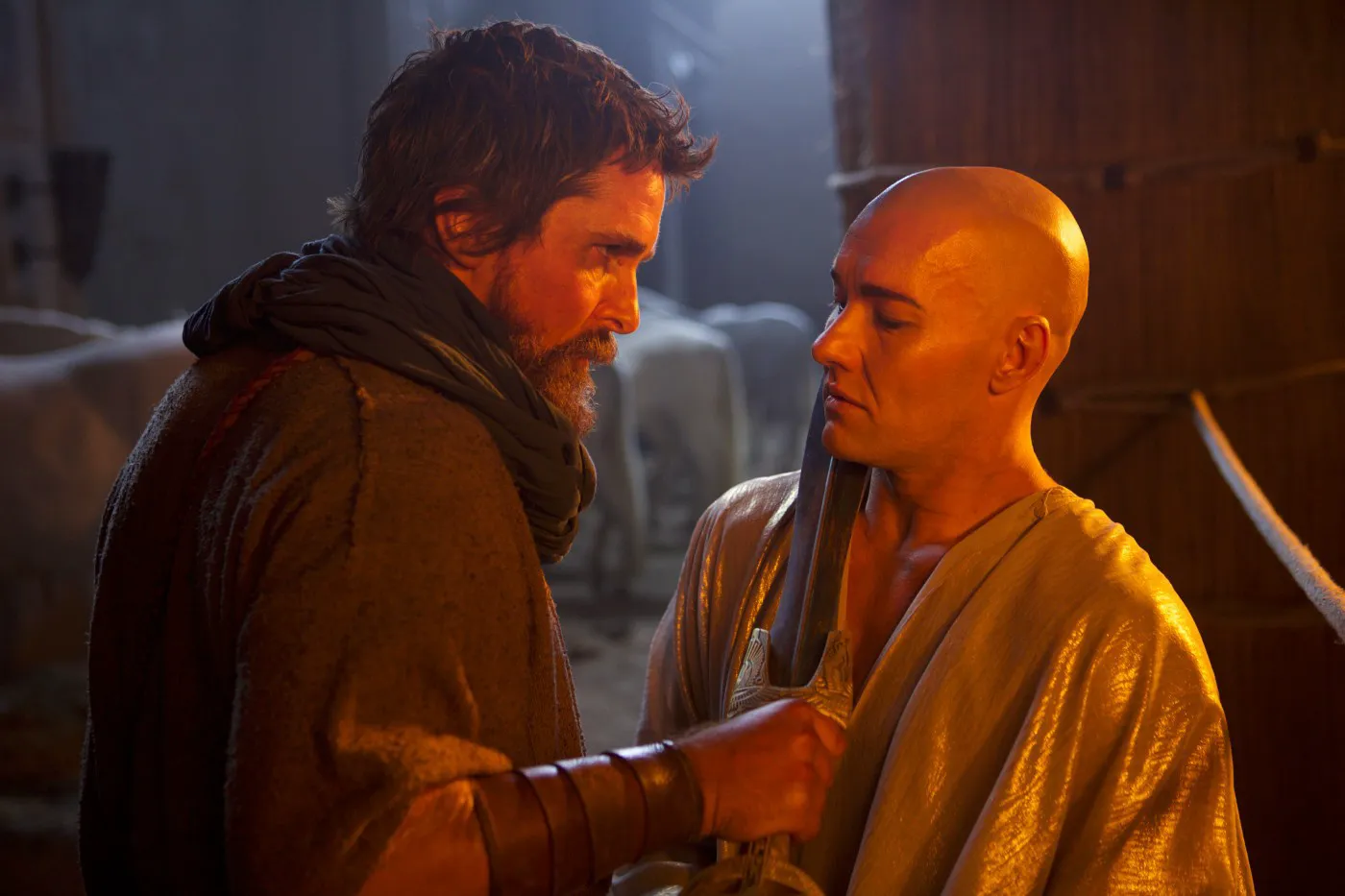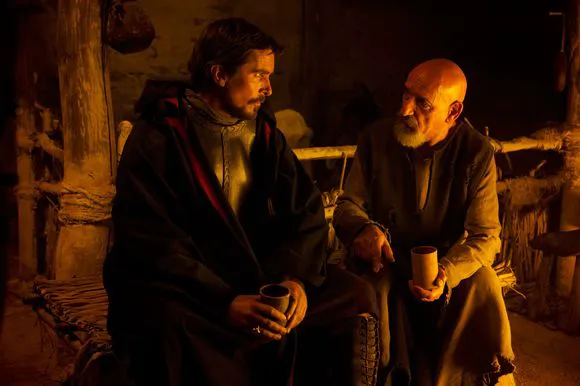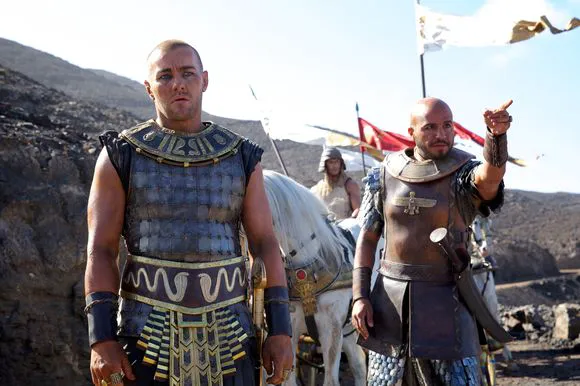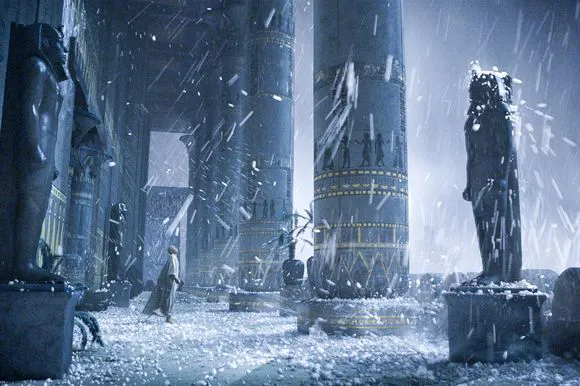Exodus: Gods and Kings - A Missed Opportunity?
Ridley Scott’s characters fall flat in “Exodus: Gods and Kings.” Their personalities are questionable, their appearances unconvincing, and their motivations unclear. Even impressive special effects can’t compensate for a lack of genuine inspiration.
The story follows the intertwined lives of Ramses, the pharaoh’s biological son, and Moses, an adopted prince. They grow up as brothers, defending each other and learning together. However, their bond is shattered by betrayal. Upon ascending the throne, Ramses learns that Moses is a Hebrew, a son of slaves, an apostate, and a liar. The disgraced prince is exiled to the desert, where he endures trials that strengthen him and lead him to connect with God. God sees in Moses a protector of the people, once banished from the sacred land and now enslaved in ancient Egypt. Years later, Moses returns to the Egyptian capital to liberate his people and lead them to the Promised Land, even if it means confronting Ramses and his army.

Fun Fact: Darren Aronofsky initially wanted Christian Bale for the role of Noah in his film of the same name, but scheduling conflicts led to Bale being replaced by Russell Crowe, Ridley Scott’s co-star in “Gladiator.”
It must be acknowledged that Christianity, with its ancient, instructive stories and miracles, is not the most visually spectacular religion. The resurrection of the dead, healing the sick, feeding multitudes with bread and wine, and the ascension pale in comparison to the mythology of Ancient Egypt, where gods devour each other and exact bloody revenge, or the vast pantheon of Greek and Roman deities. Of course, Christianity is about something different. But what works in a small church on Sunday doesn’t necessarily translate to mass culture. This explains the limited number of large-scale productions, especially those approved by the Church, about the origins, development, and trials of the world’s most widespread religion.

To prepare for his role, Christian Bale read numerous books sacred to Christians and Jews, attended Sunday school, and watched a variety of films, from Roger Young’s “Moses” to Mel Brooks’ “History of the World, Part I.”
It’s not that filmmakers avoid the subject altogether, but it’s easier to depict individual characters defending their faith than to delve into the origins. Attempting to portray Christ, the apostles, or Old Testament figures can unleash a torrent of criticism from the Church. Fortunately, prohibitions and angry rebukes often attract great artists, as they guarantee publicity, rumors, and hype. While no director would admit to seeking controversy, “Exodus” gives the impression that Ridley Scott made the film for three reasons: to audaciously challenge religious sanctity, to revisit the glory days of “Gladiator,” and to finally work with Christian Bale.
Spectacle Over Substance

“Exodus” is no “Gladiator.” Scott’s new film is closer to “Kingdom of Heaven,” where the scale of the sets overshadows the characters, action interrupts spiritual growth, and technical accuracy trumps historical realities and common sense. However, these imbalances are secondary to the main question: why did Ridley Scott make this film? While the director deviates from the canonical portrayal of Moses, which is a plus, he doesn’t fully reimagine the great liberator of the Jews from slavery. The Moses of “Exodus” is independent and possesses a few striking qualities, and he genuinely finds faith through hardship. However, he isn’t a true rebel. Bale’s character is more of an observer, a complainer, and even a whiner at times. Moses raises many objections to God, but acknowledges His power and inscrutable ways. This internal paradox deprives the character of inner strength, a core that would support the rest of his personality. Without this core, “Exodus” is as unstable as the desert sands of Egypt.
Visuals That Dazzle, But Don’t Engage

Compensating for the weak lead character, Ridley Scott indulges in special effects and scale. The film is filled with awe-inspiring shots of the ancient Egyptian capital, the grand battle scene is worthy of the director’s previous works, and the visualization of the “Ten Plagues of Egypt,” especially in 3D, is overwhelming. We’ve seen elements of this before: alligator attacks, swarms of insects, even rain of frogs. Scott simply gives it a biblical scale, seasoned with the fear of divine wrath. To be fair, Scott approaches the “plagues” from a scientific perspective, but he doesn’t completely deny their divine origin.
A Disappointing Result
Ultimately, even a strong cast can’t overcome the film’s problems. John Turturro and Sigourney Weaver have minimal screen time, Ben Kingsley portrays his usual ingratiating Yitzhak Stern, Aaron Paul barely speaks, and Joel Edgerton, despite impressive makeup, isn’t particularly convincing as Ramses. As a result, the entire film feels like Ridley Scott didn’t dare to be radical, but also didn’t want to be overly reverent. “Exodus” is weak in its characters, plot, motivations, morality, and desire to connect with the audience. We know Scott as a different filmmaker: bold, decisive, and iconoclastic. Let’s hope that the great director’s journey through these deserts doesn’t last forty years; we don’t deserve such torture.